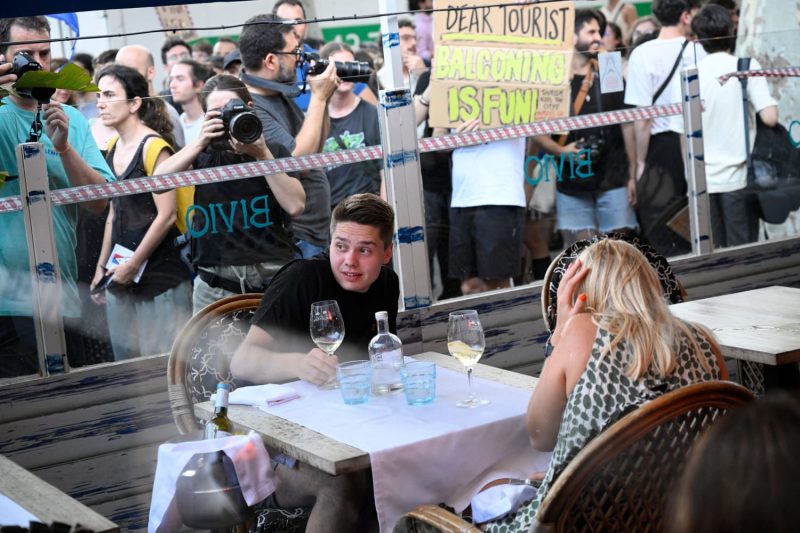The recent protests in Barcelona that saw protesters targeting tourists by throwing items and spraying them with water have sparked a debate on the impact of overtourism on the city’s local residents. The demonstration, which took place in the popular tourist area of Barceloneta, sheds light on the tensions that have been brewing for years as a result of the surge in tourism in Barcelona.
One of the key issues at the heart of this protest is the impact of tourism on the local community. Barcelona, like many other popular tourist destinations, has experienced a rapid increase in the number of visitors in recent years. While tourism plays a significant role in the city’s economy, providing jobs and generating revenue, it has also placed immense pressure on the city’s infrastructure and public services. The influx of tourists has led to issues such as overcrowding, rising rental prices, and the commercialization of local neighborhoods.
The protesters’ call for tourists to go home reflects a growing frustration among the local residents who feel that their city is being overrun by visitors. Many feel that the city’s identity and culture are being eroded by mass tourism, which often prioritizes the needs of tourists over those of the local community. The protest in Barceloneta demonstrates the extent to which these tensions have escalated, with residents taking direct action to voice their grievances.
At the same time, it is essential to consider the perspective of the tourists who visit Barcelona. Many tourists are drawn to the city because of its unique culture, architecture, and vibrant atmosphere. However, the negative impacts of tourism, such as overcrowding and disrespectful behavior, can detract from the overall experience for both visitors and locals alike.
Finding a balance between maintaining a thriving tourism industry and preserving the quality of life for local residents is a complex challenge that cities like Barcelona are grappling with. Sustainable tourism practices, community engagement, and responsible travel behavior are key factors in achieving this balance. By listening to the concerns of local residents, involving them in decision-making processes, and promoting sustainable tourism initiatives, cities can work towards creating a more harmonious relationship between tourists and the local community.
In conclusion, the recent protests in Barcelona highlight the deep-seated issues that arise from the impact of tourism on the city. It is crucial for stakeholders, including local authorities, residents, and tourists, to engage in meaningful dialogue and collaboration to address these issues effectively. By working together towards a common goal of fostering sustainable tourism practices and preserving the cultural heritage of the city, Barcelona can strive to create a more inclusive and equitable environment for all who visit and call it home.
